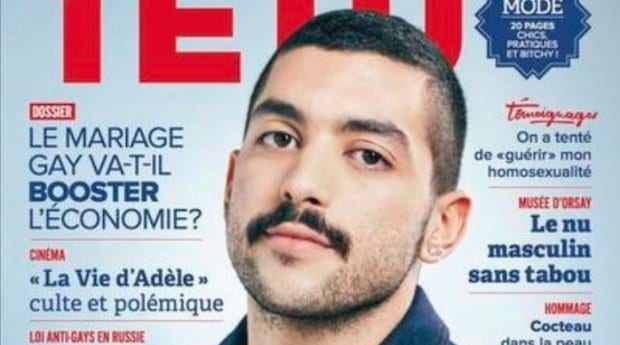A public figure and legal adviser in the small, largely Christian Lebanese city of Zouk Mikael is trying to stop a concert by a local, independent band whose lead singer is gay.
“We, the honourable free people in Zouk will not be silenced,” Fouad El Adem wrote on his Facebook page in July. “We will have our movement on the ground to stop this band from entering our town. Lebanon is a land for traditional families, not a land for faggots.”
By the time watchdog group Lebanese LGBT Media Monitor picked up on El Adem’s status, it had been liked by 120 of his followers, though Facebook removed the post shortly thereafter.
Undeterred, the band, Mashrou’ Leila, still plans to perform at the Zouk International Festival on Aug 2.
El Adem remains firm in his opposition. “Some faggots attacked me online today,” he wrote following Facebook’s removal of his first post. “You’re free to do whatever you want with your bodies, as long as you know that I’m disgusted by you, no, I’m repulsed by you.”
El Adem adds that he is “not attacking” the gay community, but rather blaming “the silly officials who allowed you to come to my dear town.”
It’s early 2009, and it’s raining in Egypt. I’m sitting in my basement apartment in Cairo, looking at people’s feet passing by my small ceiling window, feeling lonely and nostalgic. I grab my laptop, hoping for some entertainment to fight the depression and click on a random video posted by a Lebanese friend on YouTube. A slow, rhythmic melody, with a heavy base guitar, comes out of the speakers, followed by the soulful voice of a young man singing in Arabic about his longing for his male lover, wishing that he could introduce his lover to his family.
I am shocked as I listen to the bittersweet lyrics, so I turn to Google for answers. The song was recorded by a Lebanese band called Mashrou’ Leila (A Night’s Project) that was formed in 2008. The band began as an experimental workshop in the American University in Beirut and released its first self-titled album in 2008. Its lead vocalist, Hamed Sinno, became an instant gay icon for the Arab LGBT community.
By the end of the song, titled “Shem al-Yasemin” (“Smell the Jasmine”), I was hooked. It reminded me of Jay Brannan’s song “Housewife,” but I felt that I could relate to it much more, mainly because it told our stories in our own mother tongue. Not to mention that it was a well-written, beautifully composed song.
Fast-forward to 2014. Hamed Sinno has gained international recognition. He has been featured on the cover of French gay magazine Têtu, and the band’s 2010 concert at the Lebanese Byblos International Festival — where Sinno waved the rainbow flag — was attended by then-prime minister Saad al-Hariri.
In 2012, the band headlined the Baalbeck International Festival, and the event was filmed and released as a live concert — a rare feat in the Arab world.
Sinno never had to come out of the closet because he was never in the closet. He might have become a sensation in the Arab world as the only openly gay Arab singer, but his work, and his band’s work, equally kept him in the spotlight with three acclaimed albums, all well received by both fans and critics.
But El Adem is not alone in his opposition. One Facebook comment accused the band of trying to recruit youth to support homosexuality as a precursor to requesting “rights of marriage and adoption, such as what happens in the West.”
Another Facebook page, run by a local youth group, posted, “Our town is now the Zouk of Mashrou Leila” and “Zouk of the gays, what a shame.”
One townsperson, Fernand Ferzan, vowed to stand against the band and “such people. We will fight them because our culture, society and religion reject them.”
Another resident, named Fredy Karkour, says he is “spitting” on Sinno. “You’re garbage; your love is where shit comes out,” he says.
One member of the Lebanese LGBT Media Monitor says she’s not surprised to see the homophobic reaction to Mashrou’ Leila’s upcoming concert. “To be honest,” she says, “we still have a lot of homophobia in Lebanon. However, the positive and supportive messages for Mashrou’ Leila were wonderful! We can fight the negative with positive, and this positive message is gaining momentum.”
Lebanese LGBT Media Monitor has received dozens of comments supporting Leila and their concert. “That’s one more reason I’m coming to Mashrou’ Leila’s gig in Zouk Festivals,” one person wrote.
The band declined to comment on the matter, saying they prefer to concentrate on the music.


 Why you can trust Xtra
Why you can trust Xtra


